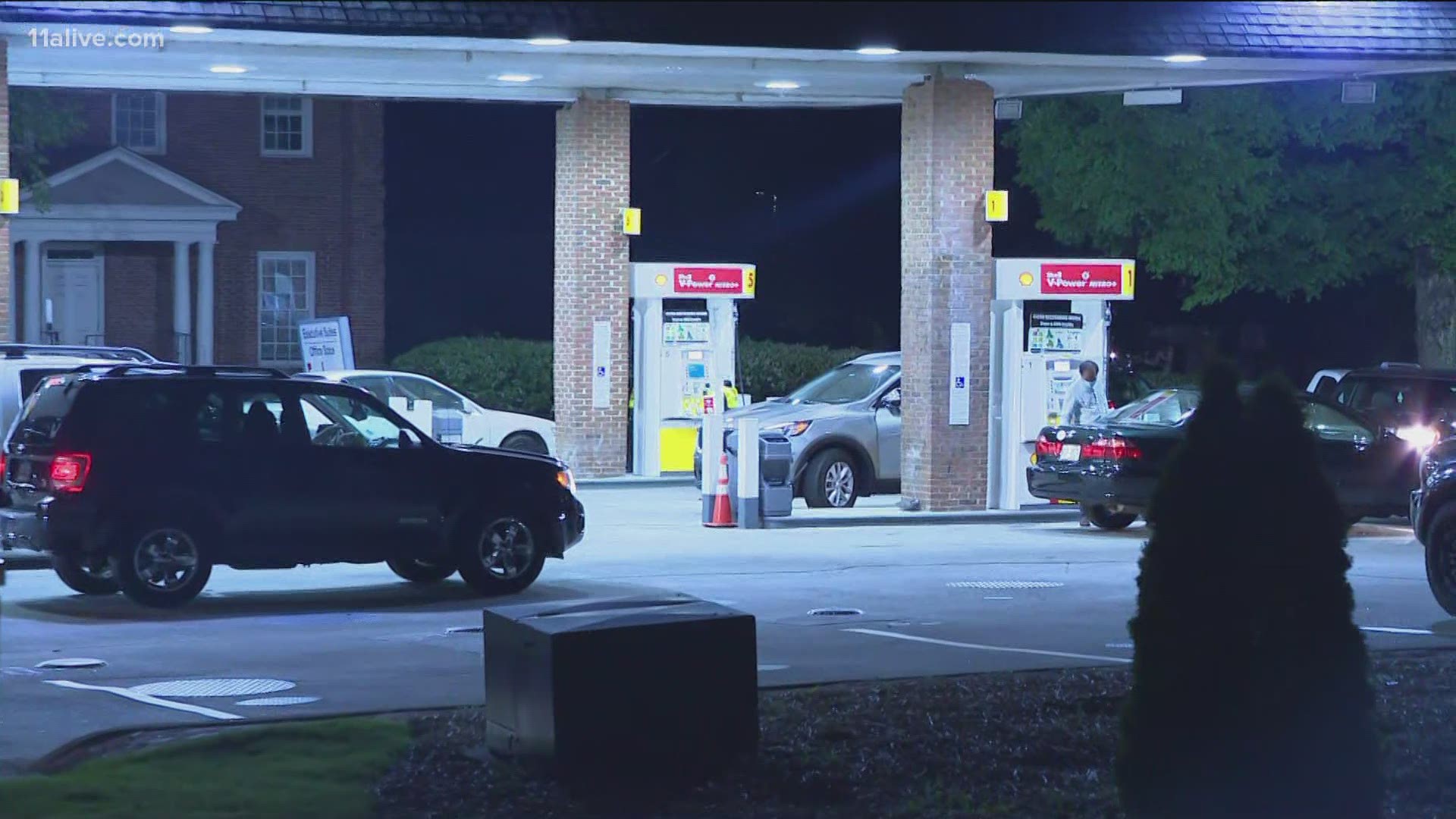ATLANTA — Governor Brian Kemp's executive order which suspends gas tax for Georgians after the Colonial Pipeline shutdown also forbids price gouging at the pumps.
Kemp announced he was suspending the state fuel tax to prevent price gouging and to assure Georgians that gas prices wouldn't skyrocket.
While many are seeing higher gas prices each day, not every incident is a case of price gouging, Kennesaw State University economics professor Roger Tutterow explained.
"What we're looking for in a price gouge is someone who is truly taking advantage of a situation and the thing to remember is just because you see the price of the pump go up in gasoline, that doesn't mean that the gas station is benefitting from that," he said. "They may have to pay a higher price to replace the gasoline that's in their inventory that they're selling to you."
Law enforcement agencies are asking the public to report examples of price gouging by calling 404-651-8600 or 1-800-869-1123.
So what is a case of price gouging?
"You really would have to show that there's an abnormal profit being generated at the expense of consumers because of the unexpected event," Tutterow said.
For many Georgians trying to get gas, its a flashback to the early days of the pandemic where toilet paper became a rare find. Now the rarity is finding gas under $3 or any gas at all.
Kaleb Bamber drove 30 minutes to find a gas station.
"Right now its $3.90 -- almost $4 a gallon," he said. "I feel like I'm in California."
Stephanie Tomlin waited half an hour in line for gas.
"It's my first time going through prices like this," she said. "For me its really crazy because everybody was trying to cut everybody in line."
Many are driving long distances, too, to find stocked gas stations.
"I got a phone call from my mother because she was on her way to Savannah and she said that there was no gas stations anywhere so she had been driving around 3 hours waiting for gas," he said. "She gave me the address here and told me to come as soon as I can because it's running out."
Tutterow said right now the southeast is seeing an increase of about 9 cents per gallon, while the west coast is experiencing about half of that -- 4 cents.
He added that the impact could last at least a week after the pipeline shutdown is resolved.
"Clearly the effect of the Colonial Pipeline is more pronounced here locally and we expect you could see prices rise even higher as we work our way through the week," Tutterow added.
11Alive reached out to several gas retailers about the shutdown. Read their statements below.
RaceTrac:
Due to the ransomware attack on the operator of Colonial Pipeline on Friday, May 7, 2021, some areas are experiencing temporary fuel outages. RaceTrac locations in Alabama, Georgia, Louisiana and Tennessee may have been impacted by this issue.
RaceTrac’s mission is to make people’s lives simpler and more enjoyable, and we are working around the clock to provide uninterrupted fuel supply for our guests. Please reference https://www.racetrac.com/Gas-Availability for locations in your area that currently have gasoline.
If you have any questions about RaceTrac’s fuel supply, please contact our Guest Engagement team Monday – Friday, 8 a.m. – 6 p.m., by calling 1-888-636-5589 or by emailing guest@racetrac.com.
Kroger:
This is a continuously evolving situation. We do not want to set false expectations for area residents and at the same time we don’t want to encourage long lines at terminals. If you don’t need fuel, there is not a need to rush out and top off your tank. There will be some supply disruptions due to the cyberattack on Colonial Pipeline and spot outages may occur. We are doing our best to maintain supplies where we can and looking forward to a return to normal as soon as possible.
BP:
We know that this unexpected industry-wide outage on colonial is concerning to customers and we are proactively working to provide continued service and like everyone we are closely monitoring the situation with colonial to help us understand any potential impacts to service. Like everyone else we are paying attention to their website to see when they expect to be up and running hopefully by the end of the week.
CITGO:
CITGO distributes fuels to a network of branded distributors who in turn supply fuel to the retail locations. CITGO does not directly own or operate retail locations.
Following the disruption to the Colonial Pipeline, CITGO reduced rates at its Lake Charles, La. refinery in order to maintain as much operational flexibility as possible. CITGO is moving products by marine from its Lake Charles refinery and, at the same time, is exploring alternate supply methods into other impacted markets. Our Corpus Christi Refinery remains unaffected.
CITGO will continue working with Colonial to move product when able to do so.

